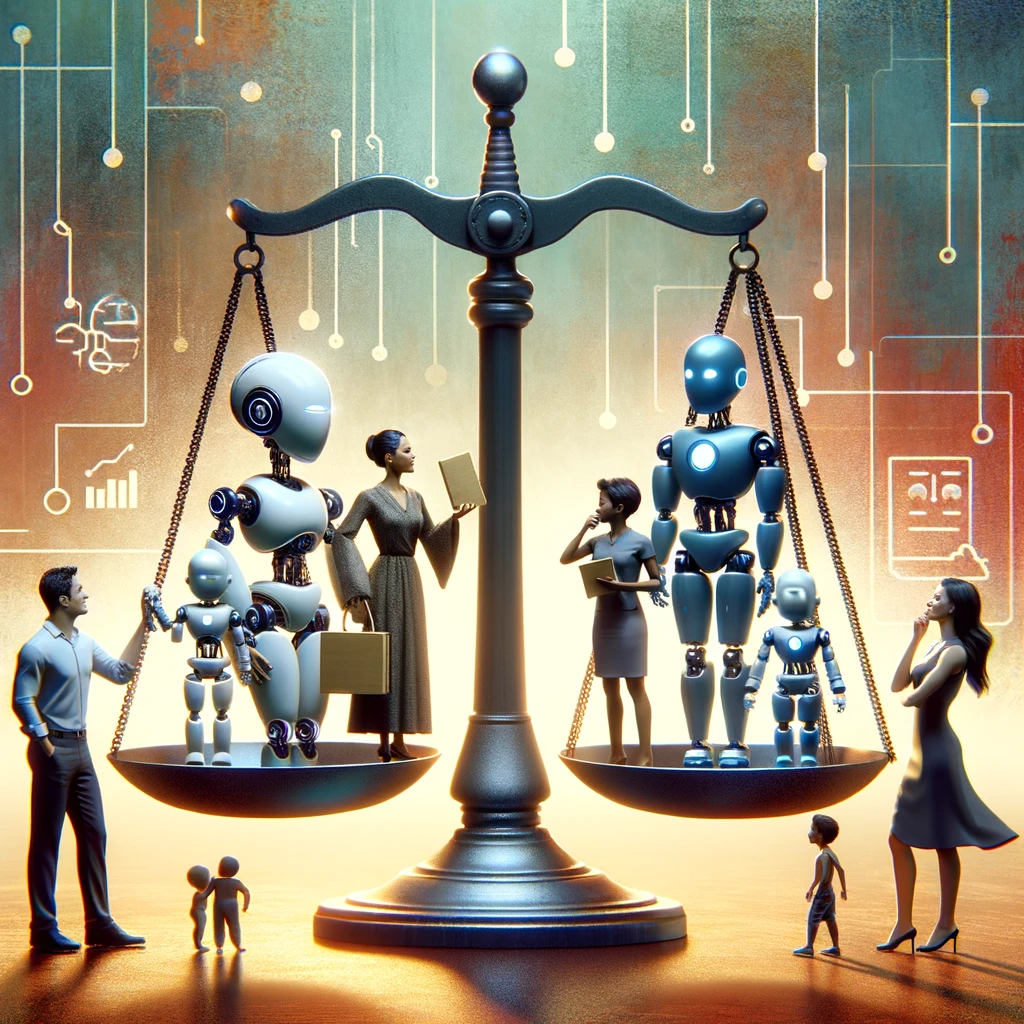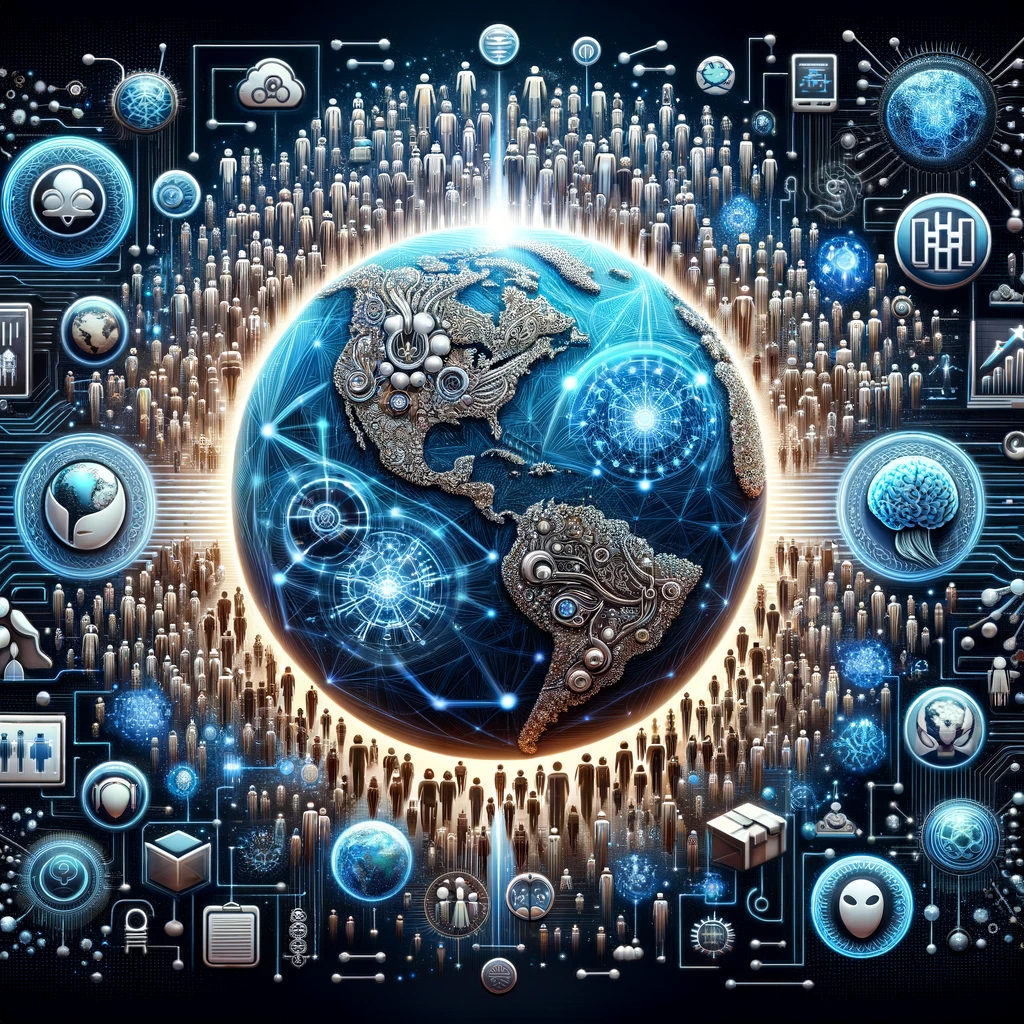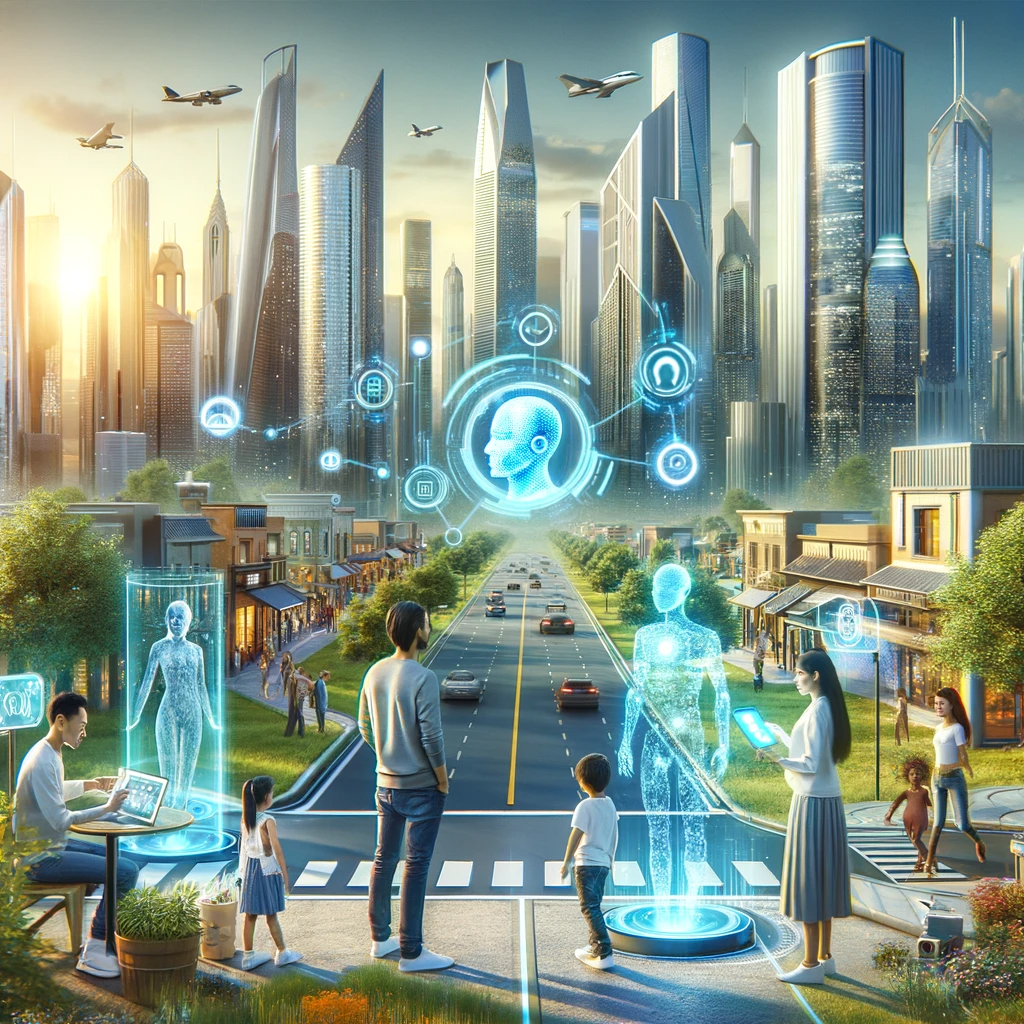Artificial Intelligence (AI) has emerged as a pivotal force in the modern world, revolutionizing how we live, work, and interact. This groundbreaking technology, encompassing machine learning, natural language processing, robotics, and more, is not just a scientific advancement but a global phenomenon. Its applications range from enhancing medical diagnostics to optimizing agricultural practices, and from transforming transportation systems to redefining customer service. As AI systems increasingly become part of everyday life, their influence crosses geographical, cultural, and economic boundaries, underlining the need for a global perspective in their development and deployment.
However, the rapid evolution of AI also brings forth significant challenges that cannot be tackled in isolation. Issues such as data privacy, algorithmic bias, and the ethical implications of autonomous systems require a collective approach. This necessitates international cooperation in AI development, not only to maximize the technology’s benefits but also to mitigate its risks. Collaborative efforts are essential in harmonizing standards, sharing best practices, and ensuring that AI progresses in a manner that is responsible, ethical, and beneficial for all.
In this article, we delve into the critical aspects of global collaboration in AI. We will explore how international partnerships in AI development can drive innovation, the importance of establishing global standards and governance frameworks, and the need to ensure equitable access and benefits of AI across the world. This exploration aims to shed light on the collective journey towards a future where AI is developed and governed with a shared vision, aligning technology with humanity’s best interests on a global scale.

The Necessity of International Collaboration in AI Development
Artificial Intelligence (AI) inherently transcends national boundaries, epitomizing a field where innovation, knowledge, and challenges are inherently global. Unlike traditional technologies, AI’s development and impact are not confined to the labs or borders of any single country. Its algorithms can be developed in one nation, trained on data from another, and applied globally. This international nature of AI makes collaboration not just beneficial but a necessity for fostering inclusive and holistic growth in the field.
Successful international AI projects and collaborations offer concrete examples of this global synergy. For instance, the Partnership on AI, which involves leading tech companies from around the world, focuses on ensuring that AI benefits people and society. Another example is the Global Partnership on Artificial Intelligence (GPAI), an initiative by 15 member countries, including the UK, USA, and Japan, aiming to guide the responsible development of AI based on shared principles of human rights, inclusion, diversity, innovation, and economic growth.
Pooling resources, knowledge, and expertise across borders presents immense benefits. It enables countries to overcome individual limitations, whether they are in terms of technical expertise, financial resources, or data availability. Collaborative AI projects often result in more robust, diverse, and innovative solutions, as they bring together a wide array of perspectives and approaches. This pooling is particularly crucial for tackling global challenges like climate change or pandemic response, where AI can play a transformative role.
However, international cooperation in AI also faces significant challenges. Differences in regulatory environments, data privacy laws, and ethical standards can impede collaboration. Moreover, there’s often an imbalance in technological capabilities and resources between developed and developing countries, which can lead to unequal participation and benefits.
To address these challenges, a multi-faceted approach is needed. First, establishing common frameworks and guidelines on AI ethics, data governance, and technical standards can help align different countries’ policies. International bodies, such as the United Nations or the World Economic Forum, can play a pivotal role in facilitating these agreements. Secondly, there should be a concerted effort to include and support developing countries in global AI initiatives. This can be achieved through technology transfer, joint research programs, and capacity-building initiatives. Lastly, fostering an environment of trust and mutual respect is crucial. Transparency in AI development projects, open communication channels, and respect for cultural and legal differences can lay the foundation for successful international collaboration in AI.
International collaboration in AI is not just a strategic advantage but a necessity in today’s interconnected world. By working together, countries can leverage AI’s full potential while ensuring that its development is balanced, ethical, and benefits humanity as a whole.

Setting Global Standards for AI
In the realm of Artificial Intelligence (AI), the establishment of global standards is pivotal to ensure the technology’s ethical, transparent, and beneficial use. Standards for data privacy, algorithmic transparency, and ethical guidelines are not just technical requirements; they are essential measures to build trust, ensure security, and safeguard human rights in the digital age. The universal nature of these standards is crucial as AI systems often operate across borders, impacting diverse populations with varying cultural and ethical norms.
The role of international bodies in setting these standards is indispensable. Organizations like the International Standards Organization (ISO) and the IEEE have been instrumental in developing global standards for various technologies, including AI. Their expertise in convening international stakeholders – governments, industry, academia, and civil society – ensures that standards are comprehensive, inclusive, and reflect a wide range of perspectives and interests. These bodies work to harmonize different approaches to AI regulation, aiming to create a balanced framework that promotes innovation while protecting public interests.
One notable example of international standards in action is the European Union’s General Data Protection Regulation (GDPR). While it is a regional regulation, its impact on AI data privacy standards has been global. Companies worldwide, aiming to operate in or with the EU, have had to align with GDPR’s stringent data protection and privacy norms, effectively elevating global data privacy standards. This regulation has set a benchmark for other countries and regions developing their data privacy laws.
Another example is the Montreal Declaration for Responsible Development of Artificial Intelligence. This initiative, though not a formal international body, brings together experts from various fields to establish ethical guidelines for AI. Its principles, which emphasize well-being, autonomy, justice, and democratic participation, have influenced AI policies and practices around the world.
However, gaps still exist in the implementation of these standards. One significant challenge is the varying levels of AI maturity and regulatory capacity among countries. Developing nations may struggle to implement and enforce comprehensive AI standards due to resource constraints. Additionally, there’s a constant need to update standards to keep pace with the rapidly evolving AI technology, which can lead to inconsistencies and implementation lags.
In response, international bodies and alliances are increasingly focusing on capacity-building initiatives and creating adaptable, scalable standards. Collaborative frameworks that allow for local adaptation while adhering to global principles are being considered as a way forward.
Global standards for AI are essential in navigating the complex interplay of technology, ethics, and governance. The role of international bodies in setting these standards is crucial in ensuring that AI development is aligned with global human rights, ethical norms, and security requirements. While significant strides have been made, continuous effort and cooperation are required to address existing gaps and adapt to new challenges.
Governance and Regulatory Frameworks
The governance of Artificial Intelligence (AI) presents a complex landscape, fraught with challenges that arise from the technology’s multifaceted nature. AI governance involves not just the technical aspects of AI systems but also their ethical, legal, and societal implications. The need for international regulatory frameworks is underscored by the global reach of AI, where decisions made in one country can have far-reaching implications across the world.
Different countries have adopted varied approaches to AI regulation. For instance, the European Union’s AI Act is one of the most comprehensive attempts to regulate AI, focusing on high-risk applications and fundamental rights. In contrast, the United States has taken a more decentralized and sector-specific approach, with guidelines and policies emerging from various federal agencies. China, meanwhile, has been rapidly advancing in AI development and governance, with a focus on both promoting AI innovation and addressing issues like data privacy and security.
Harmonizing these diverse approaches is a significant challenge. It requires a careful balance between respecting national sovereignty and recognizing the need for a cohesive global framework. International forums like the G7 and G20, and organizations such as the OECD, are instrumental in facilitating dialogue and convergence on AI policies. These bodies can help in establishing core principles that are globally accepted while allowing for regional adaptations.
A key consideration in AI governance is maintaining a balance between fostering innovation and ensuring public safety and privacy. Regulations should be designed to encourage the development of AI technologies while simultaneously putting in place safeguards against potential harms. This balancing act is crucial in maintaining public trust in AI systems and ensuring their beneficial integration into society.
Ensuring Equitable Access and Benefits
The digital divide poses a significant challenge in the realm of AI. Equitable access to AI technologies is crucial to prevent exacerbating existing inequalities. Developing countries, in particular, risk falling behind if they do not have access to the benefits of AI innovations.
Numerous initiatives and partnerships are addressing this challenge. For example, the AI for Good initiative led by the ITU (International Telecommunication Union) aims to support AI development in ways that benefit humanity, particularly in developing countries. Similarly, the World Bank’s AI Innovation Challenge funds projects that use AI to enhance public services in low- and middle-income countries.
Equitable AI access can have transformative effects on global communities. In healthcare, AI-driven diagnostic tools can improve patient outcomes in regions where medical resources are scarce. In agriculture, AI can optimize farming techniques, benefiting small-scale farmers in developing countries. These examples highlight the potential of AI to contribute to global development goals.

The Role of Public-Private Partnerships
Collaboration between government, international organizations, academia, and industry is crucial in harnessing AI’s potential. Public-private partnerships (PPPs) play a key role in this ecosystem, combining the strengths of various sectors.
Successful PPPs in AI are numerous. One example is the partnership between IBM and the US Department of Energy, which resulted in the development of Summit, the world’s fastest supercomputer, which is used for AI research in areas like energy, advanced materials, and AI itself. Another example is the collaboration between Google DeepMind and the UK’s National Health Service, using AI to improve healthcare delivery.
These partnerships can have a significant impact on global challenges. By leveraging the resources and expertise of both public and private entities, they can accelerate AI development in areas like climate change, healthcare, and education, providing solutions that might be unattainable by individual sectors alone.
Conclusion
From setting global standards and regulatory frameworks to ensuring equitable access and harnessing public-private partnerships, the path to a responsible and equitable AI future is complex yet achievable. The key lies in global cooperation, where diverse perspectives and expertise converge to guide the ethical development and use of AI. As we look forward, it is clear that such collaboration will not only shape the future of AI but also the future of our global society, steering us towards a more inclusive and sustainable world
